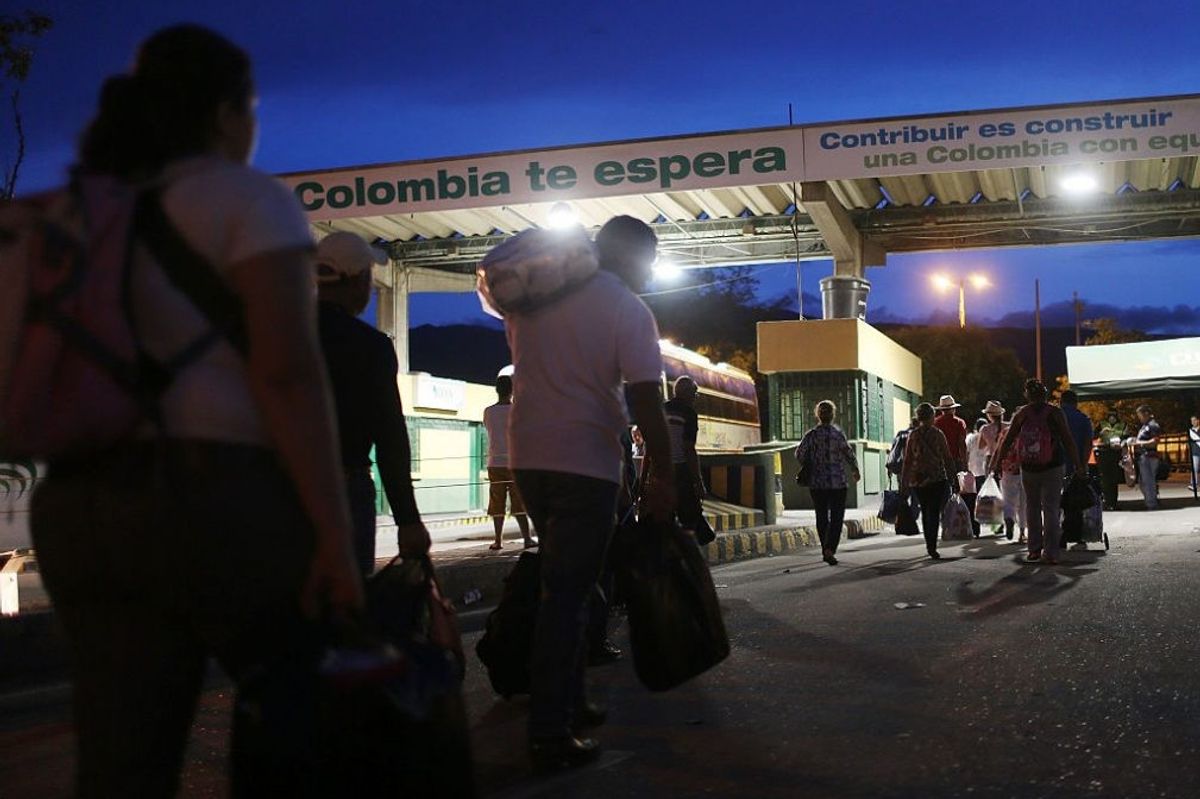The Olympic Games are supposed to bring international prestige to host countries, if all goes well. But Rio 2016 is an example of a government placing desire for prestige before sound policy, says Phil Chicola, the former Chargé d’Affaires at the U.S. Embassy in Brasília, Brazil (2005-2006). The Cipher Brief’s Kaitlin Lavinder spoke with Chicola, who is now a professor at Florida State University, about what happens when the Games end.
The Cipher Brief: Suspended Brazilian President Dilma Rousseff’s impeachment trial begins after the Rio Games end. What is the likelihood of her removal from office – could we see 13 years of Workers’ Party (PT) rule soon come to an end?
Philip Chicola: Rousseff is quite likely to be removed from office. Brazil’s Senate has voted several times to move the process forward so there is little reason to believe they will stop now. That would, indeed, bring the PT's presidencies to an end.
TCB: Until Rousseff is formally removed, is interim President Michel Temer a sitting duck? Or has he been making major reforms? If he takes office, what will be his top policy priorities?
PC: Temer is acting president until Rousseff is found guilty of violating the budget laws. After that, he will be President until the end of the current presidential term in 2018. Temer and his economic team have talked about various reforms – but to date, little has actually been done. Proposals to reduce retirement and pension benefits would not get a serious look until after Rousseff's trial. Even then, they will likely be water downed, if enacted at all. Likewise, a proposal to end a multi-year housing program that costs more than $1 billion USD per year has been shelved. Labor unions and other social welfare advocates will oppose any significant reform to their benefits or to the 80-year-old labor law. Some small reductions/policy changes are likely to be implemented, but the Brazilian Congress – as currently constituted – has little stomach for real budget cuts, tax reform, or program reductions.
TCB: Let’s say Rousseff does not get removed. What happens then in Brazil? And what would be her top policy priorities?
PC: In the unlikely case that Rousseff survives the trial, she will also talk about reforms but do even less than Temer about them. Whether she is permanently removed or not, the losing side will protest and demonstrate. The only question is how disruptive those demonstrations will be. Fear of pro-Rousseff demonstrations is probably the main reason the trial was delayed until after the end of the Games.
TCB: The economic benefits of mega-sporting events for host countries tend to be overplayed by governments. But an intangible benefit is often international prestige if the event goes well. Will Brazil get this post-Games?
PC: The central objective of the PT's foreign policy over the past 13 years has been gaining "international prestige" and to be recognized as an emerging "world power." PT’s “pursuit of Brazilian Great Power” included a number of initiatives:
- Their ham-handed efforts to gain a permanent seat on the UN Security Council. The Brazilian Foreign Ministry consistently underestimated how difficult UNSC expansion would be;
- Their resistance to Hemispheric integration, arguing instead for South American integration/solidarity, an effort long on talk but short on actual accomplishments;
- Their courting of African nations of that produced little economic benefit to the average Brazilian. Large Brazilian corporations, on the other hand often profited from subsidized projects in Africa, or for that matter in places like Cuba and Venezuela;
- Their hosting the World Cup and the 2016 Olympic Games.
In fact, the failure or near failure of most of these initiatives have made Brazil appear, once again, as a developing country that stumbles form crisis to crisis. Recent off-the-record comments by several IOC officials that future games must avoid "developing countries" further tarnishes Brazil's image, rather than enhance it.
TCB: Who in Brazil benefits from the Games once the athletes and tourists leave? Will we see an even bigger divide between the haves and have-nots in Rio?
PC: The main beneficiaries of the games are the companies that built much of the infrastructure that supposedly supports the games. They get paid regardless of how shoddy or incomplete their work was. The secondary beneficiary are Cariocas, who will be able to use some of the infrastructure built, such as a subway serving a part of the city, some new roads, etc. The games, however, did little or anything for the residents of the favelas or for the average Brazilian.
TCB: Anything else you would like to add?
PC: In a more general sense, hosting of the Olympic games is one more example of the PT-driven Brazilian policy to achieve "international prestige" at the expense of sound economic and governmental policies. These failed policies range from the disastrous effort to implement a national industrial policy based on the development of the pre-salt oil fields, which led to the PETROBAS scandal, to incomplete joint investment schemes with Cuba, Venezuela, and Africa financed by the Brazilian taxpayer through the national development bank (BANDAES), to granting the People’s Republic of China (PRC) Most Favored Nation trade status (at the expense of Brazilian manufacturers) in exchange for PRC support for the Brazilian bid for an UNSC permanent seat, etc.
For several years, I argued that Brazil's moment as a power had arrived. I was wrong. At least for now, the Lula-Rousseff government has demonstrated that Brazil "Is the country of the future and will always be."










